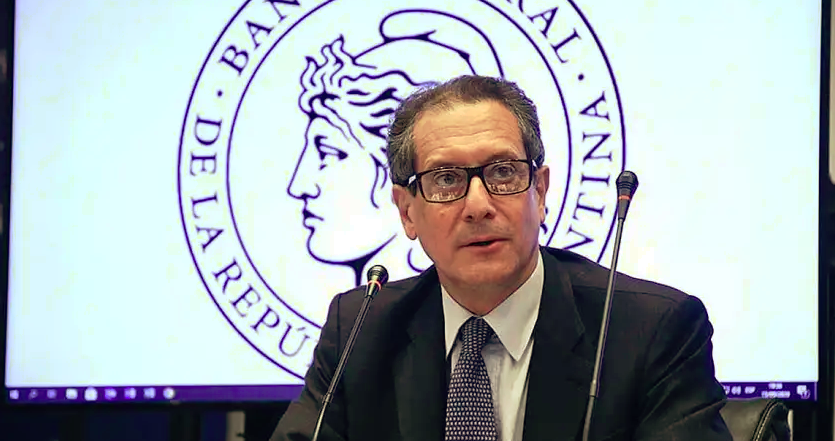RIO DE JANEIRO, BRAZIL – Miguel Pesce is “unnecessary” for the BCRA to embark on such a project, as the country has sufficient payment infrastructure with bank accounts and virtual accounts. Strong support for interaction and competition between banks and fintechs.
In a context in which various central banks around the world are analyzing the issuance of virtual currencies as a correlate of the proliferation of cryptocurrencies, the president of the Argentine Central Bank, Miguel Pesce, ruled out this possibility for the country as “unnecessary” given the characteristics of the Argentine financial system.
Read also: Check out our coverage on Argentina
“The creation of a digital currency is not the idea of the BCRA. We need to maintain our role as regulator, take advantage of the fact that there is competition, and let the private players play their role in the payment system. The central bank is not thinking of issuing a virtual currency,” Pesce said.

“There is no need to invest too much in what we already have, which is a system in which 90% of adults have a bank account, to which the dynamic of virtual accounts of fintechs was added as a complement. When we took office, we decided to coordinate and put in order this infrastructure so that it is interoperable,” added the head of BCRA.
As he explained, in December 2019, 7% of the adult population had a virtual account, and 6% had both a virtual and a bank account. By the end of 2020, these figures had increased to 21% and 22%, respectively, and this momentum has continued in the current year.
In a webinar organized by the Argentine Fintech Chamber, Pesce pointed out an intense discussion in the Financial Stability Board (FSB) about the possibility that central banks could issue a virtual currency.
However, he categorically ruled out that this would be applicable in Argentina, as the country “has an infrastructure that makes such a system, where the BCRA would have to open accounts, unnecessary. “We should maintain for BCRA the role of regulator and not the role of a service provider in the payment system,” Pesce said.
While countries such as China have already announced plans to introduce a digital currency, it was announced yesterday that Nigeria would be the first country to issue its own currency, the e-naira, in October.
Other countries such as Russia, the United Kingdom, France, and Brazil pursue the same goal. The United States has the same plan, although Federal Reserve Chairman Jerome Powell has said he is in no hurry to implement it.
At the same time, Pesce warned that the center is “concerned” about developing cryptocurrencies in Argentina. “We need to educate the population so that we don’t have situations where, based on misinformation, someone carries out a transaction over which they don’t have sufficient control,” Pesce said.
Cryptocurrencies were created as a means of payment, not investment. Their scarcity has driven up their price, and they have high volatility, a characteristic that a currency should not have,” the BCRA head said.
In response to Pesce’s concerns, President Alberto Fernández issued a statement two weeks ago calling for “cryptocurrencies not to be denied.” The president was surprised with an interpretation not shared by economists. “They say that the advantage is that the inflationary effect is largely canceled out. It is also true that it creates uncertainty because there has already been some fraud with cryptocurrencies,” the head of state said.
“But we should not refuse because maybe it is a good way forward. The biggest advantage for us would be that we could somehow contain inflation because it’s a pretty hard currency,” Fernández added.

